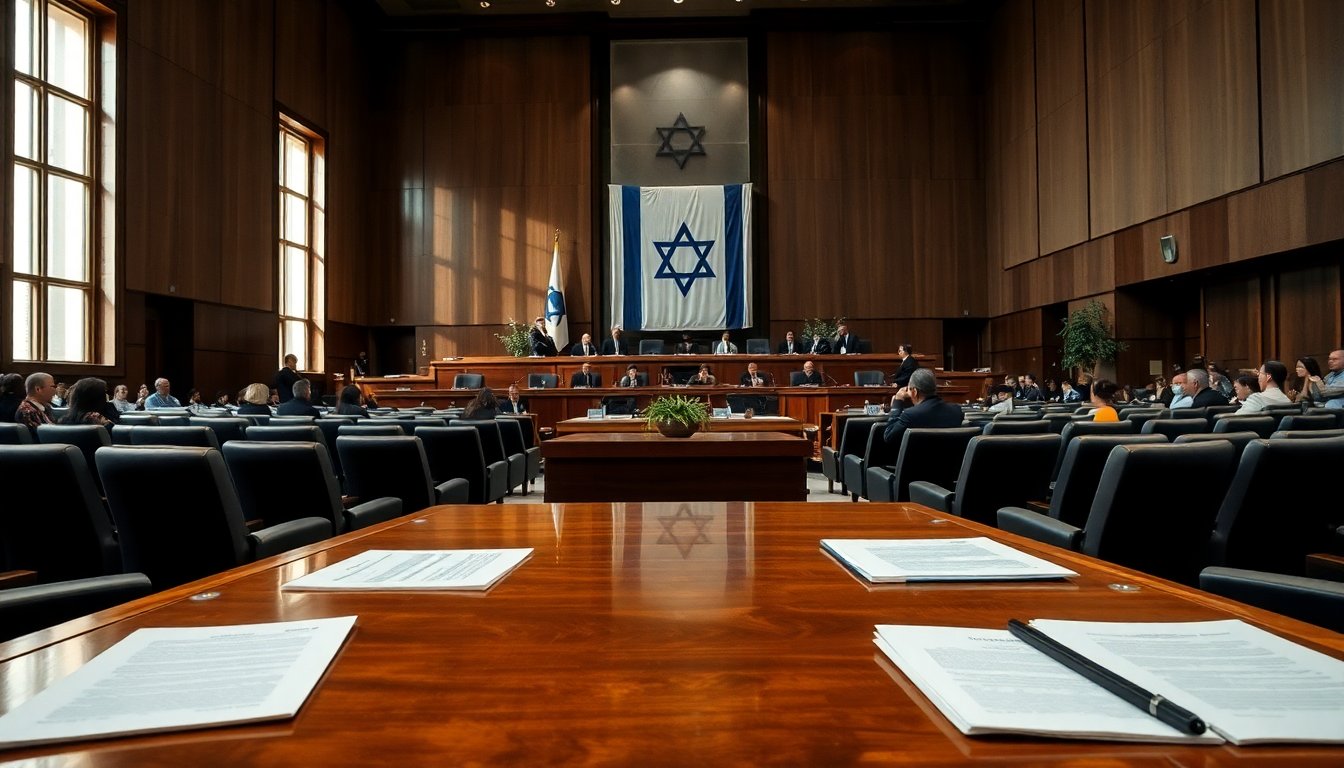Table of Contents
The political landscape in the Middle East has shifted dramatically following a recent decision by the Israeli parliament, known as the Knesset. This legislative body has advanced preliminary votes to annex significant portions of the West Bank, sparking widespread criticism and concern. U.S. Vice President JD Vance has publicly condemned the Knesset’s actions, labeling them a political stunt that may heighten tensions between Israelis and Palestinians.
Understanding the Knesset’s recent actions
On October 23, the Knesset held preliminary readings of a bill that seeks to extend Israeli law to certain areas of the West Bank. This legislative effort is seen as a potential step toward formal annexation, raising concerns about escalating tensions in the region. The vote passed narrowly, with a tally of 25 to 24, marking only the first of four approvals required for the bill to become law. Notably, this vote coincided with Vice President Vance’s visit to Israel, where he is involved in discussions aimed at strengthening a ceasefire agreement in Gaza.
Implications for Israeli-Palestinian relations
The proposed annexation carries significant implications for the future of Israeli-Palestinian relations. As the Knesset advances its legislative agenda, tensions between Israel and the Palestinians are likely to escalate. The Palestinian Authority has consistently asserted that the West Bank is an essential part of their envisioned state, rendering any Israeli annexation a highly contentious matter. In 2025, the United Nations reaffirmed that Israel’s occupation of these territories is illegal, amplifying international scrutiny of Israel’s actions.
Political reactions and historical context
The government of Prime Minister Benjamin Netanyahu is experiencing internal divisions regarding the issue of annexation. Some members of Netanyahu’s coalition advocate for formal annexation, while the Prime Minister has remained largely silent on the topic after previously making commitments that have since been retracted. The political landscape in Israel is intricate, with various factions proposing different strategies concerning the West Bank. Notably, Netanyahu’s Likud party did not endorse a recent bill introduced by lawmakers outside his ruling coalition.
Understanding the complexities of international relations
Israel’s claims to the West Bank are often framed through biblical and historical ties to the region. Despite this, the international community largely considers these areas as occupied territories. This prevailing view creates significant challenges for Israel’s diplomatic relations, especially with Arab countries. Recently, the United Arab Emirates issued strong warnings regarding potential annexation, describing it as a red line that could threaten their diplomatic ties with Israel, established under the Abraham Accords facilitated by former President Donald Trump.
Vice President Vance’s recent comments underscore the delicate balance in U.S. foreign policy concerning the region. His criticism of the Knesset’s decision reflects broader concerns about the impact on peace efforts and stability. As the situation develops, the future of Israeli-Palestinian relations remains uncertain.
The Knesset’s move to advance a bill for annexation represents a pivotal moment in the Israeli-Palestinian conflict. This decision carries significant political ramifications both domestically and internationally. Stakeholders will need to monitor ongoing developments closely as they seek a resolution that fulfills the aspirations of both peoples.


